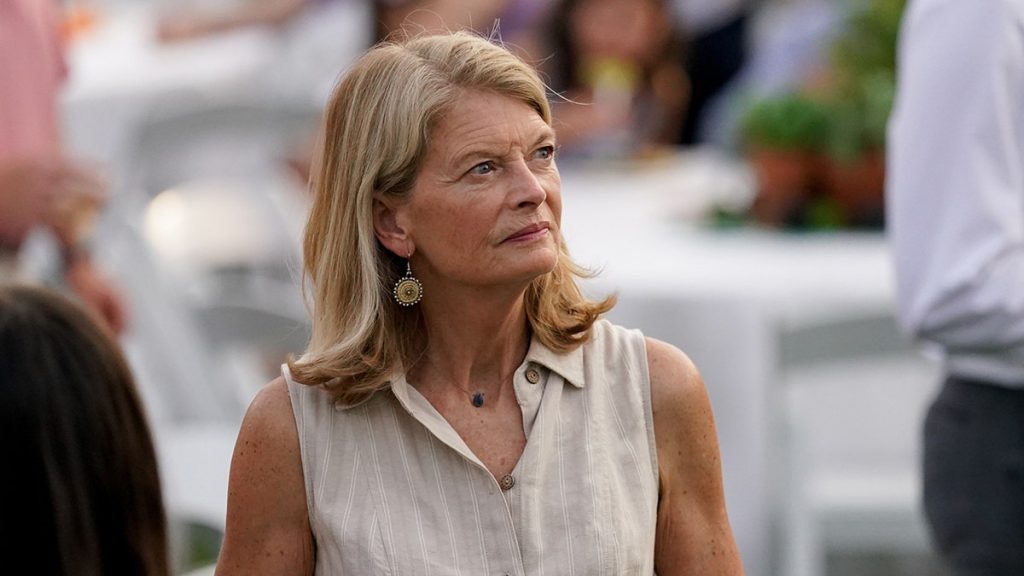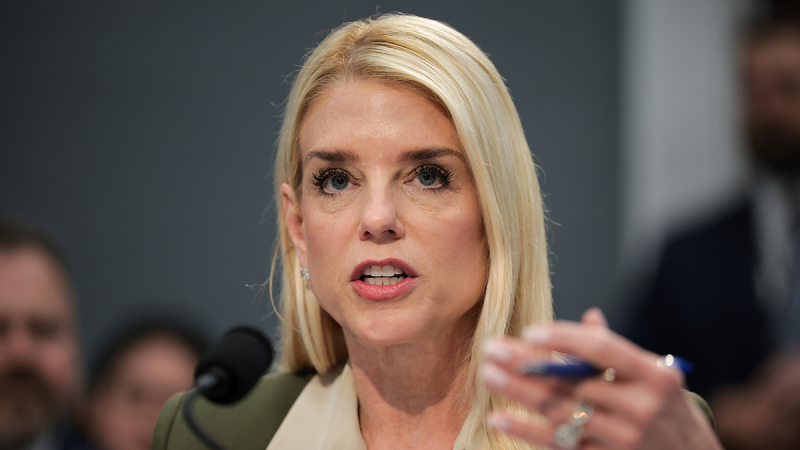Republican senator calls caucusing with Democrats an ‘interesting hypothetical’

Sen. Lisa Murkowski, R-Alaska, called the prospect of caucusing with Democrats an ‘interesting hypothetical,’ but she fell short of fully committing to doing so if the Democrats pick up three seats in the 2027 midterms.
‘It’s an interesting hypothetical,’ Murkowski said on the ‘GD Politics’ podcast with Galen Druke. ‘You started off with the right hook here, is if this would help Alaskans.’
The senator is promoting her new book, a memoir titled, ‘Far From Home.’ She was repeatedly asked if she would caucus with Democrats if the party divide in the upper chamber of Congress becomes 50-50 after the next election.
‘That’s why this book is kind of scary, because now people know what motivates me, and it’s this love for Alaska and what I can do,’ she said. ‘So, that’s my primary goal. I have to figure out how I can be most effective for the people that I serve.’
Murkowski said the ‘problem’ she had with Druke’s hypothetical was that ‘as challenged as we may be on the Republican side, I don’t see the Democrats being much better.’
She said the Democrats also have policies that she inherently disagrees with.
‘I can’t be somebody that I’m not,’ Murkowski said, describing how she received pressure to run as a Libertarian after narrowly losing the GOP Senate primary in 2010. She went on to win as a write-in candidate in a historic victory, launching her Senate career. ‘I can’t now say that I want this job so much that I’m going to pretend to be somebody that I’m not. That’s not who I am.’
Druke, arguing that Murkowski would not have to become a Democrat to caucus with them, asked, ‘Is there world in which by becoming unaligned or an independent that you could help Alaskans, you’d consider it?’
‘There may be that possibility,’ she said, noting that the Alaska legislature currently features a coalition with members of both parties.
‘This is one of the things that I think is good and healthy for us, and this is one of the reasons people are not surprised that I don’t neatly toe the line with party initiatives, because we’ve kind of embraced a governing style that says if you’ve got good ideas, and you can work with her over there, it doesn’t make any difference if you’re a Republican or Democrat,’ Murkowski said. ‘We can govern together for the good of the state.’
‘If Democrats won three seats in the next election and offered you a way to pass bills that benefit Alaskans if you caucused with them, you’d consider it?’ Druke pressed.
Murkowski said in response that a coalition is ‘not foreign to Alaskans,’ but it is at the federal level in the U.S. Senate.
‘I’m evading your answer, of course, because it is so, extremely hypothetical, but you can tell that the construct that we’re working with right now, I don’t think is the best construct,’ Murkowski said, adding: ‘Is it something that’s worthy of exploration?’
Murkowski joked that Druke was trying to ‘make news’ and said the rank-choice voting system in Alaska means candidates are more likely to get elected if they are not viewed as wholly partisan.
‘It is a different way of looking at addressing our problems rather than just saying it’s red and it’s blue,’ she added.
Druke hammered the senator again, saying, ‘Was that a yes? There’s some openness to it?’
‘There’s some openness to exploring something different than the status quo,’ she said.
Murkowski, one of seven Republican senators who voted to convict President Donald Trump during his second impeachment trial after the Jan. 6 riot, recently called the July 4 deadline that GOP leadership wants to pass Trump’s ‘big, beautiful bill’ by ‘arbitrary.’
‘I don’t want us to be able to say we met the date, but our policies are less than we would want,’ Murkowski told Axios. ‘Why are we afraid of a conference? Oh my gosh.’
Senate Majority Leader John Thune, R-S.D., and House Speaker Mike Johnson, R-La., are hesitant about going to conference with the upcoming debt ceiling ‘X date’ approaching and the party lines so tight.
Murkowski, a critic of Trump’s foreign policy, particularly on Ukraine, told the Washington Post that she was in a ‘lonely position’ in the Senate, and sometimes feels ‘afraid’ to speak up among Republican colleagues out of fear of retaliation.
‘We used to be called the world’s greatest deliberative body,’ she told the Post in a recent interview promoting her book. ‘I think we’re still called it, but now I wonder if it’s in air quotes.’




